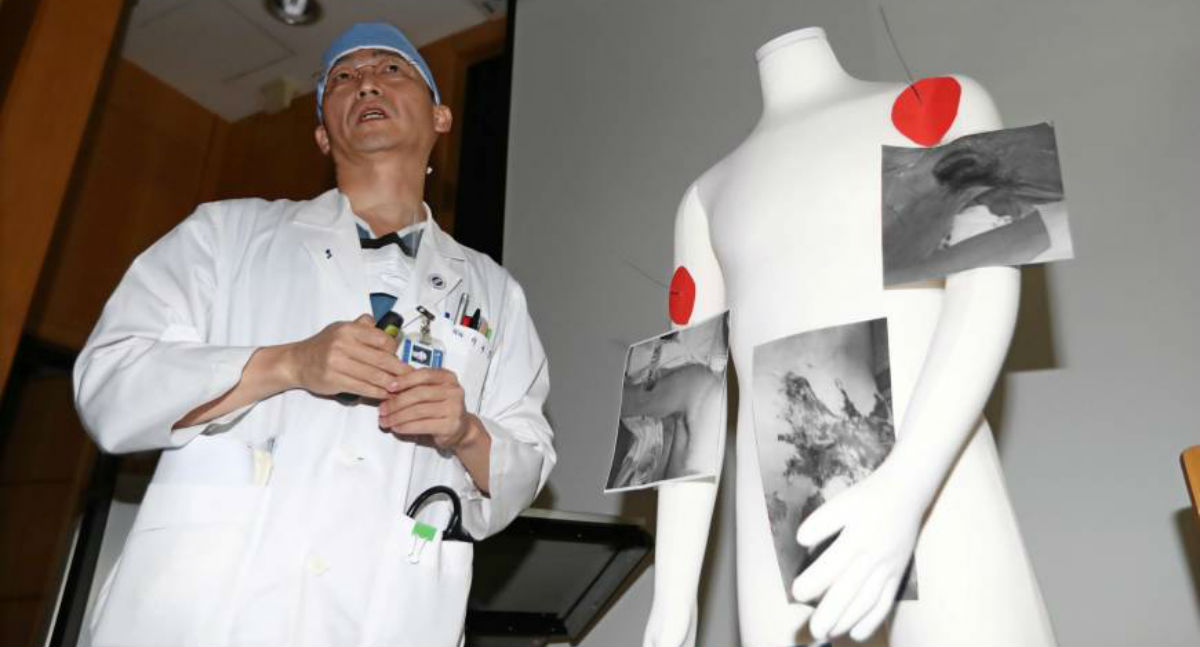
South Korea debates the privacy of a patient’s intestines
Triggered by the escape of a defector from the North
Dr Lee Cook-jong during a press conference about the wounded soldier
The escape of a defector from North Korea has ignited a bioethics controversy in South Korea.
Earlier this month, a low-ranking soldier posted in the border truce town of Panmunjom commandeered a jeep and rushed toward the heavily guarded border. He crashed the vehicle and ran through a park towards South Korea. North Korean soldiers shot at him, hitting him several times. South Korean soldiers pulled him over the border and he was rushed to a hospital.
Defections across the demilitarised zone are rare, so the defection was hot news in South Korea. The trauma surgeon who treated the defector, Lee Cook-jong, is a flamboyant figure who has often been in the news. He gave a press conference on November 15 in which he described some of the unnamed defector’s medical ailments.Dr Lee said he had found dozens of flesh-coloured parasitic worms, some as long as 27 centimetres, in the man's intestines, along with kernels of corn. This gave some insight into the health standards of North Korean soldiers. “In my over-20-year-long career as a surgeon, I have only seen something like this in a textbook,” he said.
The controversy erupted when a member of the South Korean national assembly accused Dr Lee of violating the country medical privacy law and declared that he had committed a “terrorist act against someone's personality”.
Kim Jong-dae, who represents a small opposition party, criticized him for disclosing personal information about patients. “Shootings at Panmunjom are well-known so it's natural the people and media pay a lot of attention but it is enough for the doctor to explain the process of the operation and the patient's condition,” he wrote on Facebook.
“The drastic image of a person's body contaminated by excrement and parasites shocked our society, and the people's fear and aversion went out of control,” he said. “It's not only against courtesy for the patient but also a possible violation of the Medical Law.”
Creative commons
https://www.bioedge.org/images/2008images/FB_Lee_Cook-jong.jpg
medical privacy
north korea
privacy
south korea
- How long can you put off seeing the doctor because of lockdowns? - December 3, 2021
- House of Lords debates assisted suicide—again - October 28, 2021
- Spanish government tries to restrict conscientious objection - October 28, 2021
